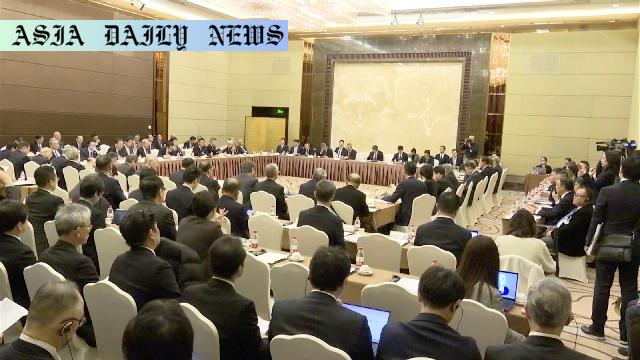Technology cooperation drives Japan-China efforts to enhance AI, data management, and create new industries.
- Key Point 1: Japan and China agree to enhance cooperation on advanced technologies, including artificial intelligence.
- Key Point 2: Discussions focus on improving manufacturing efficiency and tackling social issues with technology.
- Key Point 3: Japan-China collaboration highlights opportunities to create innovative industries and new economic activities.
- Key Point 4: Japanese delegation to inspect local companies and connect with officials in China.

Introduction: Strengthening Technology Cooperation
The recent discussions between Japanese business leaders and Chinese officials mark a significant step toward fostering stronger ties in advanced technology. With artificial intelligence and data management as focal points, this cooperation has the potential to transform industries, address pressing societal challenges, and enhance bilateral relations.
The Need for Bilateral Collaboration
In Beijing, the Japan-China Economic Association engaged with the Chinese Ministry of Industry and Information Technology to prioritize innovation-driven growth. A representative from the Chinese side underscored the urgency for seamless international collaboration, particularly amid rising barriers in trade and technology. This meeting illustrated a collective interest in overcoming geopolitical challenges by working together toward technological advancements.
Focus Areas for Cooperation
One of the pivotal themes of the talks was addressing manufacturing inefficiencies and societal concerns through artificial intelligence and data optimization. The discussion explored avenues to leverage ICT (Information and Communication Technology) to develop game-changing applications for industries like electric vehicles, autonomous driving, and internet communication. Such wide-ranging applications underscore the transformative potential of Japan-China cooperation.
Creating New Economic Opportunities
Shindo Kousei, Chairman of the Japan-China Economic Association, highlighted the opportunity to create entirely new industries. With China’s leadership in renewable energy, including advanced electric vehicle solutions, and Japan’s strengths in high-quality technology development, both nations have a complementary advantage. This partnership paves the way for innovative economic activities that could place the two Asian powerhouses at the forefront of global technological progress.
Expanding Local Engagement
As part of the delegation’s visit to China, the Japanese officials will visit Changsha in Hunan Province, a region known for its growing technological industry. Meetings with local government officials and corporate visits will provide valuable insights into China’s advancements and synergies with Japanese technologies. Such engagements are instrumental in fostering trust, understanding, and actionable outcomes in the technology sector.
A Shared Vision for the Future
The talks represent a vision for a future where Japan and China work collectively to harness cutting-edge technologies, address global challenges, and stimulate economic prosperity. By focusing on mutual strengths, both countries can lead the transformation toward a sustainable, tech-enabled society that creates value not only for Asia but for the entire world.
Conclusion
The agreement on technology cooperation between Japan and China reflects the importance of collaboration in today’s rapidly evolving global landscape. By leveraging artificial intelligence, data management, and new energy sources, this partnership sets a precedent for the impactful use of innovative solutions across borders. As these discussions materialize into actionable plans, the world will likely witness the emergence of transformative industries and a strengthened economic relationship between these two nations.



Commentary
Introduction: The Significance of Technology Partnerships
The recent discussions between Japan and China highlight the growing importance of fostering international collaboration in technology. In an era where innovation drives economies, such agreements are crucial for creating synergies between countries that share mutual goals and challenges.
Opportunities in Advanced Technology
Technology cooperation between Japan and China presents unparalleled opportunities. Both nations have unique strengths that complement each other—Japan’s advanced engineering and technological expertise combined with China’s ability to scale rapidly and adopt innovative solutions. By joining forces, these two nations can lead advancements in artificial intelligence, autonomous driving, and energy technology, potentially reshaping industries and societies.
Navigating Global Challenges
One of the critical takeaways from the talks is the shared understanding of global challenges. Rising geopolitical tensions, trade barriers, and technology restrictions call for creative ways to maintain progress and innovation. Through partnerships like these, both nations can bypass some of these roadblocks by emphasizing joint goals over divisive policies, setting an example for the rest of the world.
Conclusion: Forging Ahead
Overall, the Japan-China technology collaboration reminds us of the importance of focusing on mutually beneficial cooperation in an interconnected world. By pooling resources, expertise, and ideas, Japan and China can tackle some of the most pressing challenges while defining the future of advanced technology and innovation.